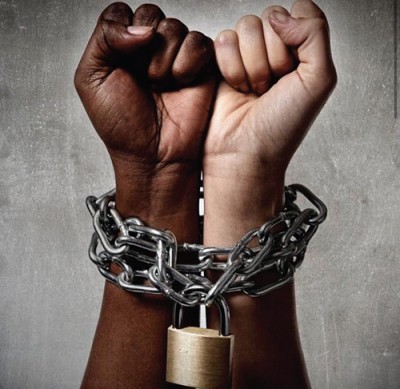
What are crimes? Simply put, a crime is a prohibition against doing something. That “something” changes from year to year, depending on the legislature. A crime can be as harmless as failing to pay for a traffic ticket, mistakenly over-drafting an account, or smoking marijuana. Even more serious offenses often represent one poor mistake in judgment, like shoplifting or driving while intoxicated. So, what happens after a person is convicted of a crime, serves their time, and is released into society? The law expects that this person will be treated the same as others. But that is hardly the case. Cases of discrimination against those with a prior conviction are on the rise. While many feel it is unfair for an individual to suffer the stigma of a conviction years after serving a sentence, employers still routinely engage in a pattern of discrimination by failing to hire anyone with criminal records. Luckily for those individuals, laws have been enacted at the state and federal levels to counteract this discriminatory behavior.
Federal ProtectionsThe Equal Employment Opportunity Commission (EEOC) protects former criminals through the enforcement and administration of federal discrimination laws by prohibiting disparate treatment. Disparate treatment requires a showing that an employee was treated differently from an individual without the same protected characteristic (a criminal conviction). While employers may ask certain questions regarding an applicant’s criminal history, they are not given complete freedom to inquire about whatever they wish. Rather, they must avoid discriminatory behavior. Employers are not free to avoid hiring anyone with a criminal past. In fact, under the EEOC, employers are encouraged to give applicants an opportunity to explain the misconduct and provide information that demonstrates rehabilitation.
State ProtectionsNew York State also protects against individuals who were previously convicted of a criminal offense. New York State’s Human Rights Law protects individuals who were previously convicted of a criminal offense. Individuals whose records are now sealed or whose crimes occurred when they were a minor are also protected by this law. Under the Human Rights Law, an individual may be able to seek recourse by filing a complaint with the Division of Human Rights if the discriminator was a private agency. If the discriminator was a public agency, an attorney should file an action in state court to protect your rights. For a viable claim under New York State’s Human Rights Law, Executive Law § 296, a plaintiff must allege that:
- They were a member of a protected class;
- They were competent to perform the job in question, or were performing their job duties satisfactorily;
- They suffered an adverse employment action (disciplinary action, termination); and
- The action occurred under circumstances that give rise to an inference of discrimination.
If you feel that you have been discriminated because of your past, an attorney can assist you with determining what options are available for your situation. Be proactive: if you were recently incarcerated and have questions about your rights, you should contact an attorney as you apply for employment. Many previously incarcerated people were surprised to learn that they did not have to disclose an arrest where no charges were filed. Furthermore, an employer may not inquire about juvenile records, sealed records, or diversion programs.
Contact Shalom Law, PLLC To Discuss Your RightsThere is life after serving prison time. Laws have been passed at both the State and Federal levels to reward rehabilitation and avoid recidivism. The statutes are designed to protect individuals from being denied employment due to an employer's discovery or awareness of an individual's pre-employment criminal conviction. After a prisoner’s debt is repaid to society, that individual should enjoy the same rights and freedoms that other citizens enjoy. While the law cannot force an employer to give you a job, the law can compensate you for the discriminatory act, and punish the employer for its egregious conduct.
Depending on the facts that underlie your conviction, new laws have been enacted that allow attorneys to apply for the sealing of certain offenses. If years have passed since your conviction, you could be eligible to file to have your records sealed. If you would like to discuss this possibility, or any form of discrimination, contact Mr. Shalom for more information at (718) 971-9474 or by email at This email address is being protected from spambots. You need JavaScript enabled to view it..
Everyone has a right to live a life that is free from discrimination.
By Jonathan Shalom, Esq.
Jonathan Shalom, Esq., a duly admitted attorney representing and counseling clients with all Employment and Healthcare law matters in New York State. Mr. Shalom may be contacted at 718-971-9474 for a free consultation.
Life After Prison: Analyzing The Discrimination Of Individuals Post-Conviction
Typography
- Smaller Small Medium Big Bigger
- Default Helvetica Segoe Georgia Times
- Reading Mode




